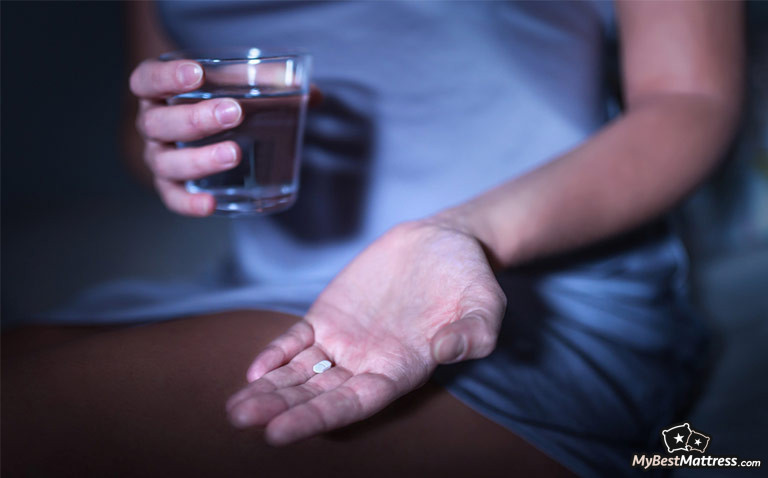
The importance of sleep is indisputable. People who suffer from insomnia feel exhausted all the time, cannot fully function and completely lose their motivation. That’s why, if you struggle to fall asleep at night, you probably have a bottle of melatonin somewhere in your medicine cabinet.
The melatonin supplement is pretty easy to get as it does not require a subscription and is quite inexpensive. The good news is that melatonin can be a very effective sleep aid for many people who suffer from insomnia and experience other sleep disorders[1].
But can you overdose on melatonin? How much melatonin to take? You may not be as pleased with these answers as you expected. Thus, read further and find out everything you need to know about melatonin.
Table of Contents
Can You Overdose on Melatonin: Intro
Let me introduce you to melatonin and its working principle. Melatonin is a natural hormone that ‘s released by the pineal gland in our brain[2], it’s responsible for sleep-wake cycle regulation.
When the evening comes and the sun goes down, the production of melatonin increases and it's released into your blood. Usually, this happens at about 9 p.m. and as the levels of melatonin rise, you begin to feel sleepy. Only when the sun comes up, the levels of melatonin decrease and you feel awakened. Since the light is associated with the low production of melatonin, people who find it difficult to fall asleep should eliminate all the light sources, especially electronic devices.
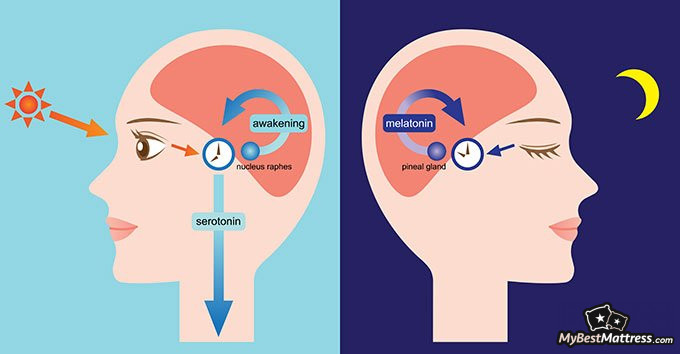
Melatonin as a supplement is most often used as a short-term medication. It’s known to help reduce jet lag[3] and can help people who have shift work when taken at the right time.
Based on the Eduardo Ferracioli-Oda study[4] called “Meta-Analysis: Melatonin for the Treatment of Primary Sleep Disorders”, melatonin had a significant effect on sleep quality and increased the duration of sleep compared to placebo. Thus, even if the number of such researches is still limited, the positive effect of melatonin for short-term usage is indisputable.
Signs of Melatonin Overdose
Let’s move to the most important question - can you overdose on melatonin? Even though melatonin is naturally produced in our body, if you take higher than the recommended doses, it can lead to disruption in the circadian rhythm and, of course, have other unpleasant side effects.
Thus, the answer to the question “can you overdose on melatonin?” is yes. Even though it’s not known that melatonin can be a possible cause of death it can lead to certain complications and side effects. That include:
- Dizziness. It’s quite a common side effect that appears when you take too much melatonin. Dizziness can be also triggered by an allergic reaction and negatively affect the quality of your life, even cause some serious accidents while driving.
- Paranoia. This side effect can be caused by a more substantial overdose. The thing is, you can experience paranoia not only when you take more than needed once, but also when you use melatonin regularly.
- Issues with Your Stomach. When you take too much melatonin or use it regularly, you can experience unpleasant stomach issues such as diarrhea, nausea, and vomiting.
- Hormonal Changes. As I said before, melatonin is a hormone, and taking it can lead to major changes in your body. If you’re trying to have a baby, then you should avoid this supplement. It’s known that melatonin can interfere with ovulation cycles of women and affect sperm count.
- Headache. Since the production of melatonin is happening in your brain, any changes can lead to a severe headache, which will interfere with the quality of your life.
- Anxiety & Depression. These health issues are often linked to hormonal changes. Since melatonin is a hormone, these problems can appear due to the misuse.
- Daytime Sleepiness. Your body produces melatonin naturally during the night, and when you take additional dosages, it can often lead to daytime sleepiness. That’s why, when you have a long road ahead, you shouldn’t use melatonin at all.
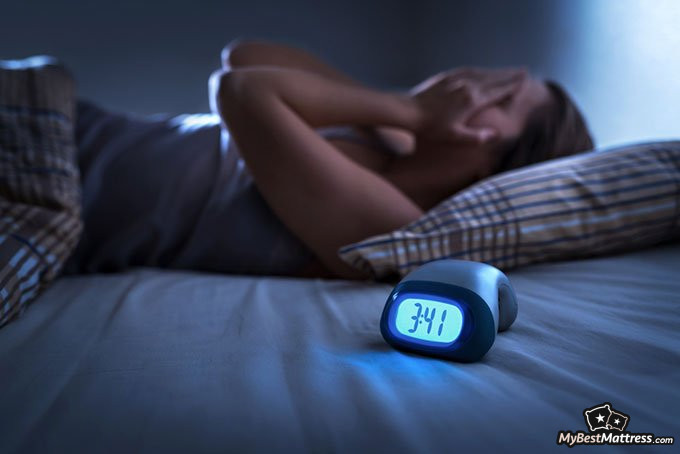
So, many sleepers keep asking - “can you overdose on melatonin?”, and the answer is pretty obvious. With so many unpleasant side effects, I doubt that you would ever take larger doses of melatonin than recommended. If you make any major changes in the usage of this supplement, you should consider talking to your doctor.
How Much Melatonin to Take?
The healthy dosage of melatonin relies upon many factors. How much melatonin to take depends on your age, weight, health history and the reason you’re taking it for. Therefore, the dose for each of the individuals may differ.
If you’ve bought melatonin supplements before, you may have noticed that most of them contain 5 or 10 milligrams of melatonin per one pill. The majority of people don’t need to take melatonin supplements as their bodies produce enough as it is.
For people who have trouble falling asleep, experience jet lag, or want to make some adjustments to their circadian rhythm, the recommended dosage is up to 3 milligrams. Individuals don’t experience any significant sleeping disorders but simply aim to sleep better, usually take as little as 0.3 to 0.5 mg of melatonin.
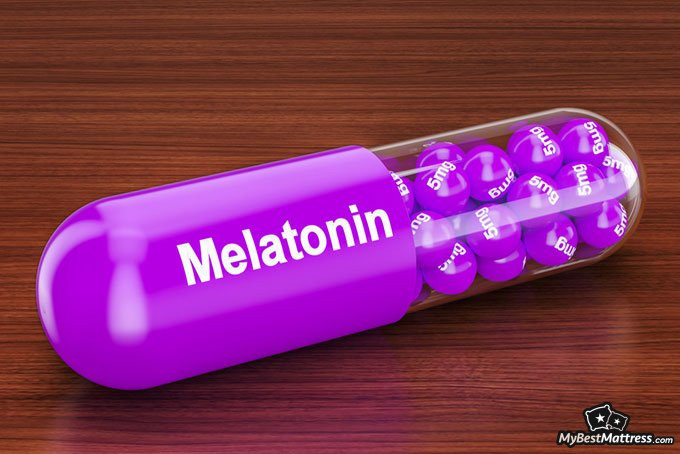
Needless to say, the majority of the supplements contain more than the needed amount of melatonin in just one pill. So, can you take too much melatonin? In most cases, if you're not aware of the amount you should be using, you’ll be taking higher doses.
Using melatonin is becoming more and more popular in the US, but there’s one major problem. Since it’s a dietary supplement and does not require a prescription, the FDA does not regulate it as strictly as prescription medicine.
Thus, what’s written on the label may not always represent what’s inside. So, can you overdose on melatonin when you’re not sure what dosages you’re taking? It’s way easier than you can imagine.
How to use Melatonin Safely?
Even though it can be difficult to say how much melatonin is too much for you as it depends on a variety of factors, I can tell you how to use this supplement safely.
When you’re starting to use melatonin, you shouldn’t begin with the high dosages. Rather, take the lowest possible dose and slowly increase it. If you feel any signs of overdose, then, next time, take a significantly lower amount of melatonin.
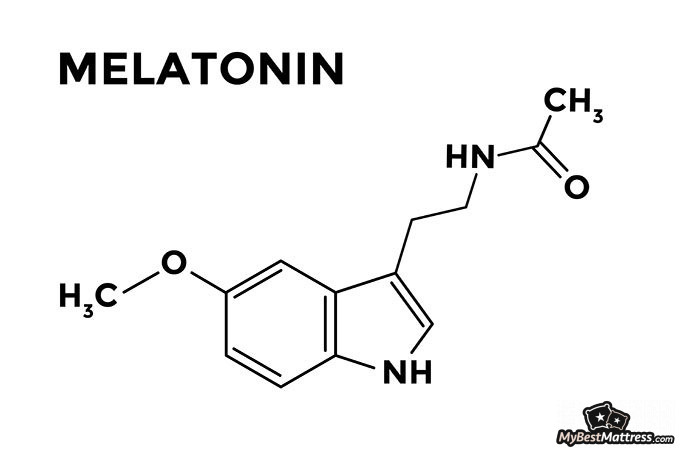
Since each of us is different, some people might notice that 3 milligrams of melatonin are too much, while others can find that 5 milligrams are not enough. If you have any questions related to melatonin, that include: can you overdose on melatonin? how much melatonin is too much? - you should consider visiting a doctor.
How Melatonin Interacts with Other Medicine?
There are many factors that can influence what effect melatonin has on you, but the most vital one is the medicine that you’re using together with the melatonin supplement. So, people who ask “can you overdose on melatonin” should always pay significant attention to other drugs they’re using.
You shouldn’t mix melatonin with:
- Caffeine. Since caffeine keeps you awake, it decreases the levels of melatonin in your body. If you use melatonin together with caffeine, the supplements may not be as effective.
- Birth control pills. Some birth control pills improve the production of melatonin. If you additionally use a melatonin supplement, you can easily overdose.
- Medications for diabetes. When you use diabetes medication together with melatonin supplements, the effectiveness of diabetes medication might decrease.
- Fluvoxamine. It’s an antidepressant that can increase the amount of melatonin your body takes in.
Melatonin can decrease the effectiveness of this medication. - Nifedipine GITS. It’s the medication that lowers blood pressure. When used together with melatonin, it may not be as effective.
- Verapamil. If you take this medication together with melatonin, you can feel how much melatonin is too much quicker than ever.
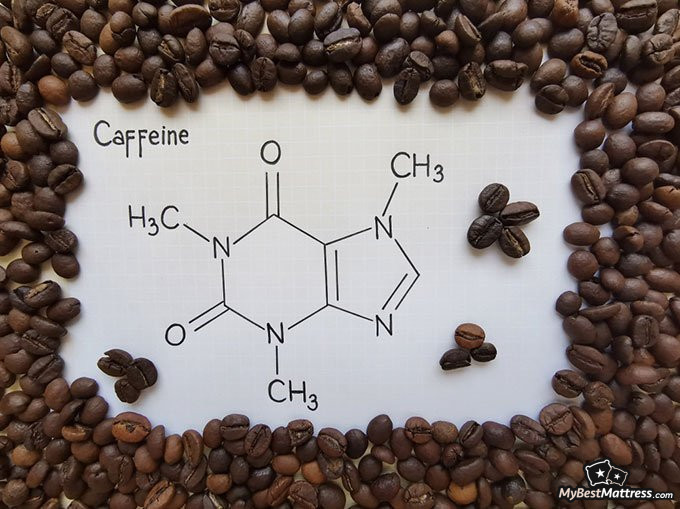
If you’re taking other medication that’s not on the list, you should contact your doctor and ask about possible interactions. Thus, the most important question you should ask - “can you overdose on melatonin using it with additional medication?”.
What are Other Recommendations for Better Sleep?
If you know simple ways that can help you to fall asleep faster and sleep longer, then you don’t need to be concerned about taking too much melatonin or using other sleep-inducing supplements. You should try the tips provided below.
Set Your Bedroom Environment
Make sure your bedroom environment is sleep-inducing. Since melatonin production increases during the dark period of the day, your bedroom must be as dark as possible. Also, when you sleep, your body temperature decreases by about 2 degrees Fahrenheit, meaning that you should sleep in a cool environment. It’s known that the best temperature for sleeping is about 65 degrees.
Don’t forget about your mattress and pillow. If you wake up with a sore neck or simply cannot fall asleep due to an uncomfortable bed, then maybe it’s time to consider getting a new mattress and pillow.

Calming Bedtime Routine
If you want to get quality sleep, you should know how to relax properly before bed. You can take a hot bath - when your body temperature rises and then cools off, it promotes sluggishness.
You can try such activities as meditation, yoga or reading a book right before going to sleep. Low-stimulation activities not only help to sleep better and improve physique but can also help you to fight insomnia.
Set a Consistent Sleep Schedule
Even though it’s not always possible, you should aim for going to sleep and waking up at the same time every day. A consistent schedule will help you to set your internal clock that will always signalize when it’s time to go to sleep and when to wake up.
So, we started with the question - can you overdose on melatonin? But I believe that you’re already starting to understand that this supplement is not needed at all if your internal clock is intact.
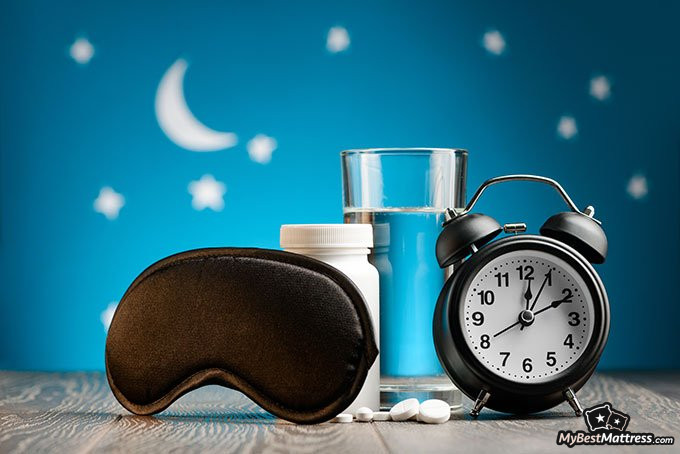
Light Evening Meals
You should never eat heavy meals right before going to bed. It’s best to eat at least 2 hours before going to sleep but if you’re really hungry, you should choose healthy snacks that won’t interrupt your sleep.
According to the research[5] performed by Amber W. Kinsey: “the consumption of large mixed meals combined with irregular sleep patterns increases susceptibility to weight gain, obesity, and cardiometabolic diseases.”
No Alcohol, Caffeine, and Nicotine
Caffeine is a stimulant that keeps us awake. Every coffee lover knows that. If you want to sleep better, then you should avoid using caffeine or minimize the dosage to one cup per day.
Smokers also have higher chances of experiencing insomnia. Cigarettes are known as a stimulant that tends to keep you awake longer. Alcohol might help you to fall asleep faster, however, it leads to more frequent waking ups during the night.
These are the most helpful tips that actually make a difference. While it might be difficult to implement each of them at the same time, you can start by slowly changing your habits.
Conclusions
Can you take too much melatonin?
How much melatonin is too much?
What are the side effects?
These are the questions that I promised to give you an answer to.
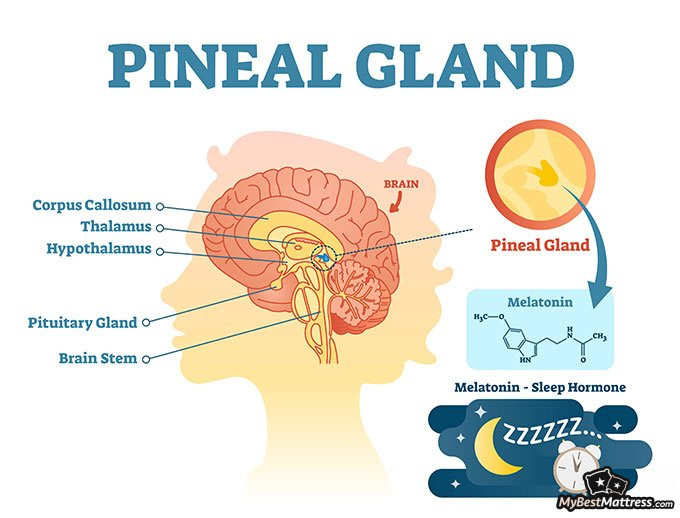
It’s quite simple to take too much melatonin because most often people need from 3 to 5 milligrams of this supplement to feel the effect, but most of the brands provide you with 5 or 10 milligrams of melatonin in just one pill.
When you’re using this supplement, you should always begin from small doses and only then start increasing them slowly. This way you will know what dosage works for you the best.
Since many people ask - “can you overdose on melatonin?”, they should know about the most common side effects of the excessive usage of this supplement. You can start feeling dizziness, paranoia, hormonal changes, issues with your stomach, headache, and even anxiety and depression.
If you’re using additional medicine together with melatonin, you should be really careful, the mixture of two supplements can create either stronger effect, or eliminate it completely.
Before taking any pills, you should always talk to your doctor and try changing your habits instead. Get rid of nicotine, alcohol, and coffee, start exercising, set a consistent sleep schedule. Also, never forget that sleeping in a cool, dark bedroom together with a comfortable mattress can lead to much better sleep.
Scientific References
1. Harneet K. Walia and Reena Mehra: 'Overview of Common Sleep Disorders and Intersection with Dermatologic Conditions'
2. Martin F. Rath, Steven L. Coon, Fernanda G. Amaral: 'Melatonin Synthesis: Acetylserotonin O-Methyltransferase (ASMT) Is Strongly Expressed in a Subpopulation of Pinealocytes in the Male Rat Pineal Gland'
3. Andrew Herxheimer, Keith J Petrie: 'Melatonin for the prevention and treatment of jet lag'
4. Eduardo Ferracioli-Oda, Ahmad Qawasmi, and Michael H. Bloch: 'Meta-Analysis: Melatonin for the Treatment of Primary Sleep Disorders'
5. Amber W. Kinsey and Michael J. Ormsbee: 'The Health Impact of Nighttime Eating: Old and New Perspectives'
Leave your honest feedback
Leave your genuine opinion & help thousands of people to choose the best mattress. All feedback, either positive or negative, are accepted as long as they’re honest. We do not publish biased feedback or spam. So if you want to share your experience, opinion or give advice - the scene is yours!












